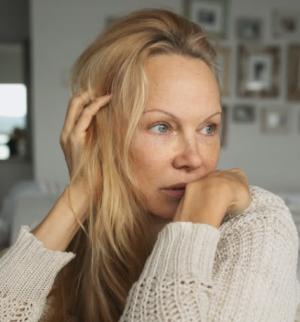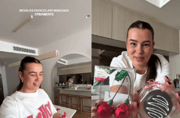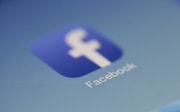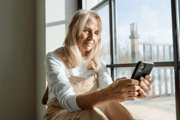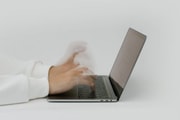Why many women are seriously rethinking makeup after this star’s bold move
By
Maan
- Replies 13
The decision to go makeup-free can be empowering, yet it’s often met with mixed reactions, especially for women in the public eye.
For one iconic figure, this shift has sparked both admiration and criticism, leaving many to question how beauty standards are evolving.
In the following story, we explore the impact of this bold move and hear from women of different backgrounds about their experiences with ageing, confidence, and makeup.
When you think of Pamela Anderson, chances are you picture the blonde bombshell from her Baywatch days, with her signature smokey eye, glowing skin, and glossy lips.
However, in recent months, the actress, who was nominated for a Golden Globe for her leading role in The Last Showgirl, has been embracing a more natural look, stepping out on the red carpet without makeup.
At 57, Anderson has shared several reasons for ditching the makeup, including the death of her makeup artist, a desire to challenge conventional beauty standards, and a newfound comfort with her own skin.
Though she’s clarified that makeup is not off the table entirely: ‘I love to wear makeup too sometimes,’ she said at the 2024 Gotham Awards, ‘It has a time and a place.’
Anderson’s decision has been met with mixed responses. Many have praised her–including her The Last Showgirl co-star Jamie Lee Curtis, who posted a bare-faced selfie in tribute.
‘As a former actress and clinical psychologist, I am aware of industry and societal pressures for women to wear makeup when it may not be in alignment with their own values,’ said Charissa Chamorro, an assistant clinical professor at the Icahn School of Medicine at Mount Sinai.
Despite societal pressures, more women are choosing to forgo makeup as they age, something Chamorro sees as empowering.
‘What feels groundbreaking now is that women may finally feel like they truly have the freedom to choose what works for them,’ she says.
A few women from Anderson’s generation shared their take on makeup, aging, and confidence.
‘I realised how freeing it is to be outside of the male gaze.’
Rachel Wolf, 54, didn’t begin wearing a full face of makeup until her 40s. At the time, she was starting her career as a filmmaker and producer.
‘I needed to get my new career going,’ she said. Wolf believed makeup would help her be taken seriously.
Surprisingly, research backs her up: a 2022 study found that women who wear makeup are seen as more attractive, competent, and dominant, which can aid career success.
However, everything changed for Wolf when she went through menopause and noticed men paying her less attention as she grew older.
‘Ageism is a real thing,’ she says. Initially, the shift felt ‘kind of devastating,’ but with time, Wolf found freedom in no longer needing to impress men.
‘I realised how freeing it is to be outside the traditional male gaze,’ she explained. Wolf came to understand how much time she had spent worrying about men’s opinions and ultimately decided to wear only the most minimal makeup.
While she’s comfortable with her choice, Wolf acknowledges that women with financial security, like herself and Anderson, may feel less pressure to conform.
‘The more financially secure you are, the less women feel the need to impress people for a job or a promotion,’ she adds.
'Maybe, thanks to Pamela, I don’t need to worry about it.'
'Maybe, thanks to Pamela, I don’t need to worry about it.'
Angela Carpenter, 56, also wears less makeup now but isn’t ready to go completely bare-faced.
‘In my teens and 20s, I may or may not have put on makeup even while camping and had a butane curling iron to do my hair where there was no electricity,’ she recalls.
Looking back, Carpenter admits she was ‘insecure and self-conscious’ about her looks.
Now, however, that self-consciousness has faded, and she believes it’s a gift of age. ‘Don’t we all get to the point where we don’t give two figs what anyone else thinks and do what we want to do for ourselves?’ she says. Instead of spending hours applying makeup, Carpenter has opted for a ‘no-makeup makeup look,’ which takes her just a few minutes to pull off.
Despite her laid-back approach, Carpenter still feels pressure to glam up for special occasions. She’s been searching for the right ‘occasion look’ that suits her updated approach to beauty. ‘Maybe, thanks to Pamela, I don’t need to worry about it,’ she says with a smile.
'I went cold turkey.'
For Marianne Sarcich, now 59, her journey to ditching makeup was a gradual but significant change. When she first moved to New York City in her 20s, she couldn’t fathom leaving her apartment without a full face of makeup.
‘I followed what I learned religiously,’ she says, recalling how she hired a makeup artist to teach her the ropes.
But years later, Sarcich experienced a ‘huge aha moment.’ She realised she was wearing makeup because she felt she might not be seen as ‘good enough’ without it.
‘At that moment, I was so jolted by the realisation that I knew my next steps — and that was to stop wearing makeup completely. I went cold turkey. Never looked back,’ she says.
For Sarcich, going makeup-free has been liberating. ‘It allows me to be my genuine self and to know that I am accepted for who I am as a person and not what I look like,’ she explains.
Her belief that makeup isn’t necessary only strengthened when she was diagnosed with breast cancer in 2016. Inspired by the phrase ‘stop should-ing all over yourself’ from the breast cancer community, Sarcich now only wears makeup for special events, such as when speaking at breast cancer gatherings.
She believes Anderson’s decision will encourage others to embrace their natural beauty too. ‘Sometimes, you just need that nudge to do what you want to do and not what you think you should do,’ she says.
'It’s just not for me.'
When Dianne Boyer, 64, first heard about Pamela Anderson’s decision to stop wearing makeup, she considered whether she could do the same. ‘Could I do that?’ she wondered. But after reflecting on her own makeup journey, Boyer realised that going bare-faced wasn’t for her.
‘My makeup story started with my mum, who, up until the day she passed away at 85, got up every morning and ‘put her face on,’’ she says. Boyer’s mum taught her that makeup was an essential part of starting the day.
For Boyer, wearing makeup isn’t just about appearance — it’s about how it makes her feel. ‘It’s how I feel most like myself,’ she explains.
As a stylist, Boyer spends a lot of time thinking about image. While she understands why some women opt to go makeup-free, she insists, ‘It’s just not for me.’
For her, makeup is part of her identity and helps her maintain the version of herself she’s always been. ‘I want to keep looking like myself. It’s not about holding on to youth. I just want to be the same Dianne that people have known for over 50 years,’ she says. ‘And that’s me with makeup.’

How do your own beauty choices reflect who you are or who you want to be? Share your thoughts and join the conversation!
For one iconic figure, this shift has sparked both admiration and criticism, leaving many to question how beauty standards are evolving.
In the following story, we explore the impact of this bold move and hear from women of different backgrounds about their experiences with ageing, confidence, and makeup.
When you think of Pamela Anderson, chances are you picture the blonde bombshell from her Baywatch days, with her signature smokey eye, glowing skin, and glossy lips.
However, in recent months, the actress, who was nominated for a Golden Globe for her leading role in The Last Showgirl, has been embracing a more natural look, stepping out on the red carpet without makeup.
At 57, Anderson has shared several reasons for ditching the makeup, including the death of her makeup artist, a desire to challenge conventional beauty standards, and a newfound comfort with her own skin.
Though she’s clarified that makeup is not off the table entirely: ‘I love to wear makeup too sometimes,’ she said at the 2024 Gotham Awards, ‘It has a time and a place.’
Anderson’s decision has been met with mixed responses. Many have praised her–including her The Last Showgirl co-star Jamie Lee Curtis, who posted a bare-faced selfie in tribute.
‘As a former actress and clinical psychologist, I am aware of industry and societal pressures for women to wear makeup when it may not be in alignment with their own values,’ said Charissa Chamorro, an assistant clinical professor at the Icahn School of Medicine at Mount Sinai.
Despite societal pressures, more women are choosing to forgo makeup as they age, something Chamorro sees as empowering.
‘What feels groundbreaking now is that women may finally feel like they truly have the freedom to choose what works for them,’ she says.
A few women from Anderson’s generation shared their take on makeup, aging, and confidence.
‘I realised how freeing it is to be outside of the male gaze.’
Rachel Wolf, 54, didn’t begin wearing a full face of makeup until her 40s. At the time, she was starting her career as a filmmaker and producer.
‘I needed to get my new career going,’ she said. Wolf believed makeup would help her be taken seriously.
Surprisingly, research backs her up: a 2022 study found that women who wear makeup are seen as more attractive, competent, and dominant, which can aid career success.
However, everything changed for Wolf when she went through menopause and noticed men paying her less attention as she grew older.
‘Ageism is a real thing,’ she says. Initially, the shift felt ‘kind of devastating,’ but with time, Wolf found freedom in no longer needing to impress men.
‘I realised how freeing it is to be outside the traditional male gaze,’ she explained. Wolf came to understand how much time she had spent worrying about men’s opinions and ultimately decided to wear only the most minimal makeup.
While she’s comfortable with her choice, Wolf acknowledges that women with financial security, like herself and Anderson, may feel less pressure to conform.
‘The more financially secure you are, the less women feel the need to impress people for a job or a promotion,’ she adds.
'Maybe, thanks to Pamela, I don’t need to worry about it.'
'Maybe, thanks to Pamela, I don’t need to worry about it.'
Angela Carpenter, 56, also wears less makeup now but isn’t ready to go completely bare-faced.
‘In my teens and 20s, I may or may not have put on makeup even while camping and had a butane curling iron to do my hair where there was no electricity,’ she recalls.
Looking back, Carpenter admits she was ‘insecure and self-conscious’ about her looks.
Now, however, that self-consciousness has faded, and she believes it’s a gift of age. ‘Don’t we all get to the point where we don’t give two figs what anyone else thinks and do what we want to do for ourselves?’ she says. Instead of spending hours applying makeup, Carpenter has opted for a ‘no-makeup makeup look,’ which takes her just a few minutes to pull off.
Despite her laid-back approach, Carpenter still feels pressure to glam up for special occasions. She’s been searching for the right ‘occasion look’ that suits her updated approach to beauty. ‘Maybe, thanks to Pamela, I don’t need to worry about it,’ she says with a smile.
'I went cold turkey.'
For Marianne Sarcich, now 59, her journey to ditching makeup was a gradual but significant change. When she first moved to New York City in her 20s, she couldn’t fathom leaving her apartment without a full face of makeup.
‘I followed what I learned religiously,’ she says, recalling how she hired a makeup artist to teach her the ropes.
But years later, Sarcich experienced a ‘huge aha moment.’ She realised she was wearing makeup because she felt she might not be seen as ‘good enough’ without it.
‘At that moment, I was so jolted by the realisation that I knew my next steps — and that was to stop wearing makeup completely. I went cold turkey. Never looked back,’ she says.
For Sarcich, going makeup-free has been liberating. ‘It allows me to be my genuine self and to know that I am accepted for who I am as a person and not what I look like,’ she explains.
Her belief that makeup isn’t necessary only strengthened when she was diagnosed with breast cancer in 2016. Inspired by the phrase ‘stop should-ing all over yourself’ from the breast cancer community, Sarcich now only wears makeup for special events, such as when speaking at breast cancer gatherings.
She believes Anderson’s decision will encourage others to embrace their natural beauty too. ‘Sometimes, you just need that nudge to do what you want to do and not what you think you should do,’ she says.
'It’s just not for me.'
When Dianne Boyer, 64, first heard about Pamela Anderson’s decision to stop wearing makeup, she considered whether she could do the same. ‘Could I do that?’ she wondered. But after reflecting on her own makeup journey, Boyer realised that going bare-faced wasn’t for her.
‘My makeup story started with my mum, who, up until the day she passed away at 85, got up every morning and ‘put her face on,’’ she says. Boyer’s mum taught her that makeup was an essential part of starting the day.
For Boyer, wearing makeup isn’t just about appearance — it’s about how it makes her feel. ‘It’s how I feel most like myself,’ she explains.
As a stylist, Boyer spends a lot of time thinking about image. While she understands why some women opt to go makeup-free, she insists, ‘It’s just not for me.’
For her, makeup is part of her identity and helps her maintain the version of herself she’s always been. ‘I want to keep looking like myself. It’s not about holding on to youth. I just want to be the same Dianne that people have known for over 50 years,’ she says. ‘And that’s me with makeup.’
Key Takeaways
- The choice to go makeup-free, particularly by public figures, has sparked discussions about evolving beauty standards and the empowerment of natural ageing.
- Pamela Anderson’s decision to embrace a bare-faced look, inspired by personal loss and a desire to challenge conventional beauty norms, has drawn both praise and criticism.
- Women from Anderson's generation shared varying perspectives, highlighting how societal expectations, ageing, and financial security influence their relationship with makeup.
- While some women find freedom in forgoing makeup, others see it as an integral part of their identity, demonstrating the deeply personal nature of beauty choices.
How do your own beauty choices reflect who you are or who you want to be? Share your thoughts and join the conversation!
Last edited:

